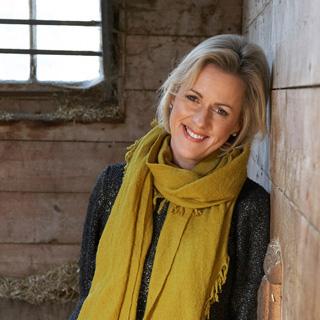Chew on this, Colonel Sanders
It’s ten days now since we picked up six rescue hens from the Battery Hen Welfare Trust’s Essex wing. Our old girls were six years old, geriatric in poultry terms, their numbers diminished by a nearby fox, and the two we had left looked a little lost. I had heard about the work of the BHWT and thought it would be good to be part of it.
The charity pays 50 pence a bird to farmers whose hens have reached a non-commercial age (that’s one year, to you and me) – the sum they would receive selling them on for meat. I thought I might nip up after the rescue party returned and choose a few.
Hah. It was like Picaddilly Circus in rural Essex. The charity had rescued 275 hens from Devon the previous day, and were oversubscribed by potential owners three times over. There were people from 50 miles away who had come to give a few hens a new life. Watching them being carted away in boxes by children, grandparents, in smart cars or boxes balanced on prams, the sheer effort and numbers of people involved in giving these creatures a new life was curiously moving.
Because it’s only when you see these hens up close that you get the full measure of how we treat our livestock today. It’s not so much the semi-bald state of them that was upsetting (we had been warned they would look a little oven-ready) or the severed beaks, the scabs, or even the anaemic appearance of creatures who have never before seen daylight.
But the way they sat down repeatedly (birds who have only ever stood on wire find flattening their feet on solid ground painful), the way they perked up dramatically within days (they have dope regularly sprayed into their water to stop them killing each other) – and most of all the side of A4 paper which replicated the size of their previous living quarters made us decide to alter our eating habits. We have smugly eaten our organic chicken once a week, and bought locally produced eggs. Now we have struck off takeaway, or chicken sandwiches – anything which might contribute to that production process.
The six girls are – ten days on – pleased with their lot. They are feisty, argumentative, have not stopped laying since arriving – and eat so much that I wonder how they were fed before. We move their runs several times a week so they get a different view of the farm, and somewhere new to scratch, and their confusion at their first drop of rain was funny and sad at the same time.
Their feathers will grow, their anaemic floppy combs pink and perk up as they become accustomed to life in the open air. Even if our dreaded neighbour Reynard gets one, according to one of the charity’s workers, they will have had a blissful time living outside as they should have done from the start.
But to call it battery farming misrepresents it; these animals were kept beyond any sense of what it means to be living. They were simply living food, on a production line. The fact that I have – even unwittingly – contributed to this in the past makes me feel ashamed.
